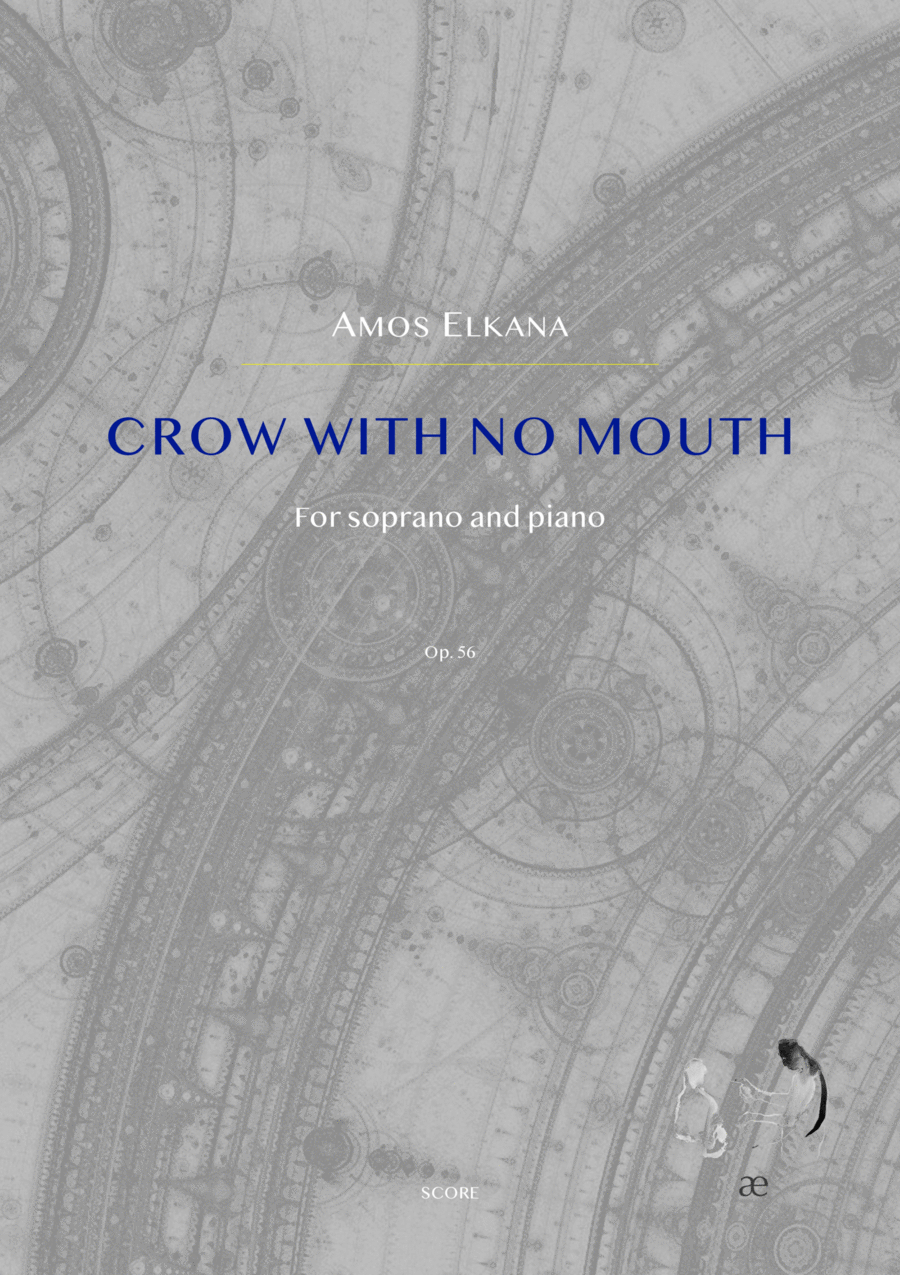Piano,Vocal,Voice - Level 5 - Digital Download SKU: A0.1324262 Composed by Amos Elkana. 21st Century,Contemporary. Score. 10 pages. Amos Elkana #912460. Published by Amos Elkana (A0.1324262). In this composition, we delve into the enigmatic world of Ikkyu Sojun, a 15th-century Zen Buddhist monk renowned for his poetry that defies conventional boundaries. Ikkyu's work often reflects Zen principles, blending deep philosophical insights with a stark, often provocative simplicity. Among his most striking poems is Crow with No Mouth, a piece that captures the essence of Zen’s emphasis on the ineffable nature of reality and the limits of language.Crow With No Mouth Hearing a crow with no mouthCry in the deepDarkness of the night,I feel a longing forMy father before he was born. In these lines, Ikkyu conjures an image that is as perplexing as it is profound. The crow, a traditional symbol of mystery and the unknown, is rendered even more inscrutable by its lack of a mouth - a paradoxical figure that seems to transcend ordinary existence. This poem encapsulates the Zen concept of mu, or the negation of fixed concepts, challenging the listener to embrace the boundless nature of understanding.In my composition, I have strived to translate this philosophical depth into music. The interplay between the piano and the voice is crafted to reflect the paradoxical imagery of the poem. The music moves through moments of tension and release, mirroring the poem’s journey from perplexity to a serene acceptance of the unknown.This piece is an invitation to explore the spaces between notes, between words, where the essence of understanding might lie.The emotional core of this composition is also deeply personal. It resonates with my own longing for my father, who passed away seven years prior to the creation of this work. Just as Ikkyu's poem reflects a yearning for a connection with the past, this music embodies my own journey of grief, memory, and the search for peace in the echoes of loss. The intertwining of my personal narrative with Ikkyu’s profound words aims to offer a universal contemplation on the themes of absence, longing, and the ephemeral nature of existence.In creating this work, my aim has been to offer not just a musical experience, but a doorway into the profound simplicity of Zen thought. Through the synthesis of voice, piano, and Ikkyu's evocative poetry, we embark on a journey that transcends the mere act of listening, inviting contemplation, and perhaps, a glimpse into the boundless sky of our own perception.
